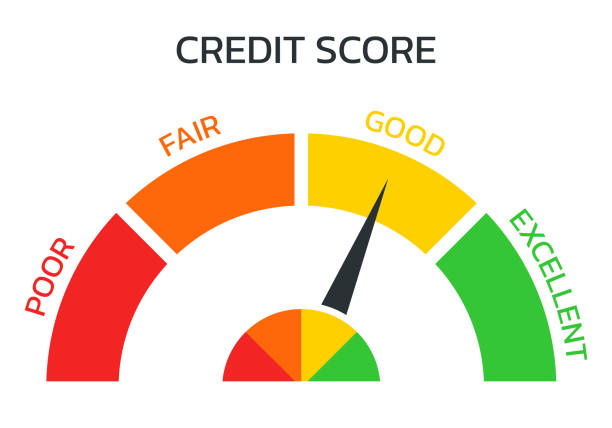Everybody should know their credit rating. You can also better understand the reasons why banks gave you certain amounts, specific terms, and, in some cases, their reasons for refusing a request.
What is a score of credit?
A credit score is the total of your report. Three agencies in Australia create credit reports. These are Equifax, Experian, and Illion.
It’s important to know your credit score because it affects many aspects of your life, especially when you need big loans for things like a car, a house, or a business. Lenders use this information to determine how much money you can borrow. A credit check is a good financial practice that should be done at least once per year.
Credit scores range from 0-1,000 to 0-1,200, depending on which body is reporting. The higher your score, the greater your borrowing power. If you have a low score, lenders will be more reluctant to lend money.
What is a good credit rating and score?
Credit ratings are bands or ranges that credit scores fall into, like average, good, very good, and excellent. A good credit score would be a score that has a “good credit rating.”
The three major agencies in Australia use the following bands for credit rating:
Each agency uses slightly different terminology to describe these ratings.
- Equifax scores (between 0-1,200 points): Below Average, Average, Good, Very Good, and Excellent.
- Experian: Below Average, Fair, Good, Very Good, and Excellent.
- (scores from 0-1,000): A low score indicates that there is room for improvement. Good, great, and excellent are also acceptable.
What lenders look for in a high credit score
A high credit score shows lenders that you are responsible with credit. A good credit score is a sign of trustworthiness. You have more options with a good credit score. You’ll be able to get more recognition with lower rates of interest because you’ve shown you can repay your debt. You will have better access to offers that include lower fees.
A credit score is important for consumers, particularly when it comes to major purchases that can have the biggest impact on their finances.
What is the average credit rating in Australia?
The average credit rating in Australia is 695. However, this number varies a great deal between different age groups.
It’s important to compare superannuation contributions with age and remaining years in the workforce.
Credit scores in Australia by age
The data shows that credit scores tend to rise with age. This makes statistical sense because younger people tend to have shorter credit histories and are less likely than older individuals to have mortgages. Credit scores are improved by both the length of credit as well as the record repayment.
How is credit score determined?
Credit agencies use slightly different algorithms to calculate credit scores. They do not disclose the details. The variations in credit scores can make it difficult to know why one agency is higher than the other.
The information contained in your credit report determines your score. This information includes how much you have borrowed, the frequency and number of credit applications you have made, and whether or not you pay your monthly bills on time. Is your credit score affected?
The two factors that have the greatest impact on your credit score are whether you pay your bills on time and how much money you owe. The factors which affect your credit score the most can be found in these categories.
Credit products
This category includes all credit products you have, including
- What type of credit card or loan is available?
- Credit limit
- Credit provider
- Dates of account opening and closing
It is also important to consider the length of credit and your mix of products.
Record of Payments
Credit scores are influenced by the amount of the repayment, the key dates, the frequency, and the number of times you have paid or failed to pay when refunds were due. A credit report will list late payments of more than 14 days.
Credit utilisation
Your score is affected by how much credit you have used. Use no more than 30 percent of your credit limit.
Defaults, debt agreements, and defaults
A default is when you fail to pay an obligation. This can affect your credit score. Bankruptcies remain on your credit history for about five years.
Credit applications
Keep track of how many credit lines you have registered (or for which you are a guarantee). Be careful if you are applying for several credit cards to increase your frequent flyer miles.
What does not affect your credit score
It?’s important to know what factors are excluded from the calculation of your credit score. Your credit score will not take into account your age, where and how you live, whether you are married or single, how much money you make, or your savings, investments, superannuation funds, etc. Credit reporting agencies only look at patterns and trends in your credit profile and history.
Expect changes in credit scores
Cr.edit information is kept on your report, at least for a few years. It’s important to request your credit report regularly so that you can monitor your progress, especially if you plan to buy a house or car soon. Your borrowing ability will be affected by what you do today.
Consider credit checks as annual doctor’s visits. It is essential to good health. A full credit “check-up” will reveal any errors and help you make better decisions about your finances.
Clarity is essential when it comes to your financial health. You have a credit report, regardless of whether you are aware of your score. You can take charge of your financial future by tracking your credit history.
A good credit score becomes more important as interest rates increase and inflation increases.




